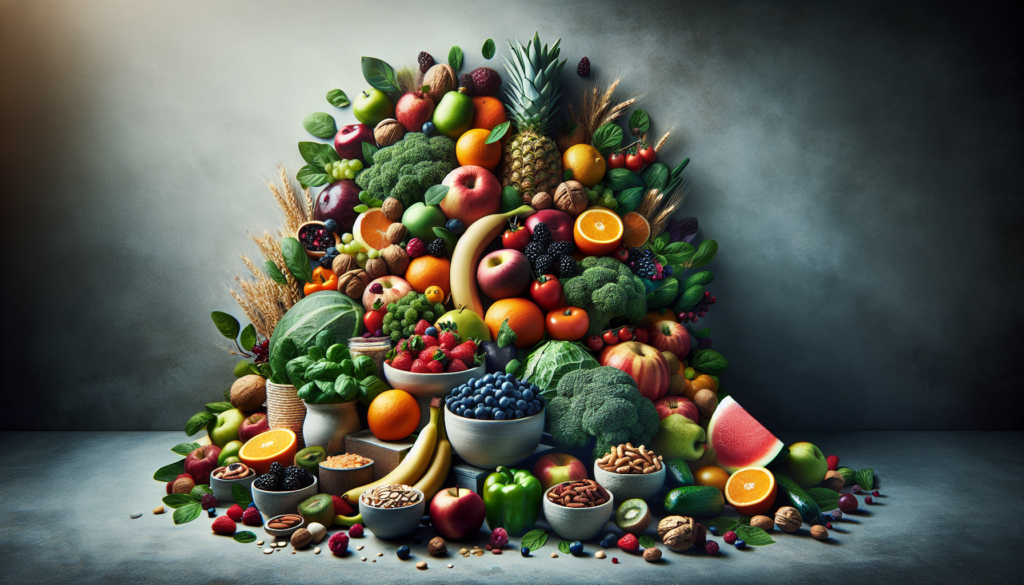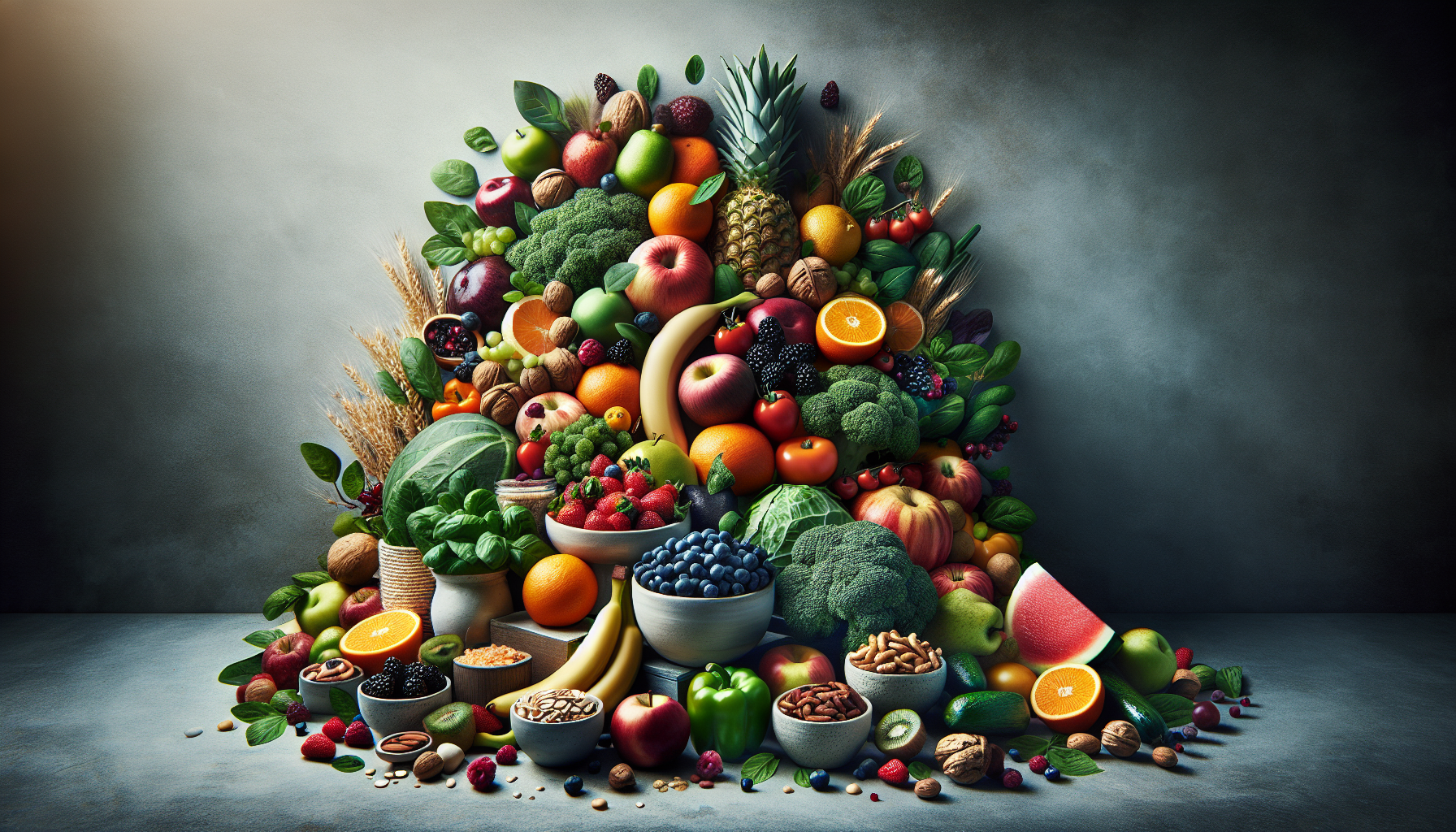Is it just me, or have you ever wondered why humans are obsessed with gulping down pills the size of horse tranquilizers for a dose of what sounds like alphabetical soup? Vitamins this, minerals that – it’s enough to make you think grandma’s casserole recipe got mixed up with a pharmacy checklist! But here’s a little secret: it’s not some grand conspiracy to keep the vitamin industry afloat. Nope, these nifty little nutrients actually play a pivotal role in keeping us upright, tap-dancing through life, and, well, alive. So let’s pull back the curtain and take a closer look at the crucial role vitamins and minerals play in your health. Spoiler: it’s not just so you have something to blame when you miss a step during aerobics class.

What’s the Deal with Vitamins?
Vitamins: The Soap Opera of Nutrients
Ah, vitamins, the prima donnas of the nutritional stage. These essential compounds are critical for a plethora of bodily functions, yet our bodies don’t produce them in enough quantities, if at all. Draped in mystery and intrigue like any good soap opera character, they have starring roles in the stories of your health.
Water-Soluble vs. Fat-Soluble: The Plot Thickens
Like in any sordid saga, vitamins come in two major types: water-soluble and fat-soluble. Water-soluble vitamins, such as those in the B-complex group and vitamin C, dissolve in water and are quickly excreted. This means they sometimes need daily replenishment, much like your morning coffee. Fat-soluble vitamins (A, D, E, K) prefer the company of fats and can be stored in your body’s primo real estate: the liver and fatty tissues. They settle in, munch on some chips, and stay there until you need them again. Clever, huh?
The Cast: Vitamins A to K
Let’s meet the cast members of this nutrient-born production:
-
Vitamin A: Not just for owls! This plays a fundamental role in vision, immune function, and skin health.
-
Vitamin B Complex: These team players include B6, B12, niacin, thiamine, and others who work together to support energy levels, brain function, and cell metabolism. Think of them as the entourage in the vitamin rock band.
-
Vitamin C: Known for bringing zest and drama, this one is essential for the repair of tissues, the enzymatic production of certain neurotransmitters, and immune system functions. Oh, and it helps ward off scurvy – because that’s a concern nowadays.
-
Vitamin D: The solar-powered vitamin! Essential for strong bones and aiding in the absorption of calcium. If you’re feeling glum, get some “D” and brighten your day.
-
Vitamin E: Loves to act like a superhero with its antioxidant powers, protecting cells from the villains of oxidative damage.
-
Vitamin K: If you’re always on the cut and bruise train, vitamin K has your back (and your blood) with its role in clotting and bone health.
Minerals: The Unsung Heroes
More Than Sparkly Rocks
If vitamins are the headliners, then minerals are the rock-solid roadies, making sure everything runs smoothly backstage. They’re the elements that, while not stealing the spotlight, ensure seamless shows for all your body’s functions. These are divided into macrominerals, required in larger amounts, and trace minerals, which, as their name suggests, need only a smidgen of attention.
Key Macrominerals
-
Calcium: Essential for the opera of bones and teeth. Picture it wearing a tuxedo and keeping your skeleton in prime condition.
-
Magnesium: Like that one friend who’s always chill and laid-back, magnesium supports nerve function, muscle contraction, and keeps your heart doing the samba smoothly.
-
Potassium: An important role-player in muscle function, nerve signaling, and fluid balance. It’s like the FOMO-fueled mineral that just can’t miss out on anything happening in your body.
-
Phosphorus: Found in bones and energy production transactions. It’s the accountant of the mineral world, making sure every energy transfer adds up.
-
Sodium: Plays a delicate French mime balancing with potassium in maintaining fluid balance and nerve function. Just don’t give it too much screen time, or things can get, well, a bit salty.
Trace Minerals: Tiny but Mighty
-
Iron: The Iron Throne for your bloodstream, it’s vital in creating hemoglobin, so oxygen gets VIP treatment on its journey around your system.
-
Zinc: Plays a starring role in immune function, healing process, and sense of taste and smell. Without zinc, food would be blander than a tax attorney’s briefcase.
-
Copper, Manganese, Selenium, Iodine: Even though they sound like guest stars on a Star Trek episode, each plays crucial roles in overall health, keeping your systems running smoother than an impromptu air-guitar showcase at a metal concert.
How Do Vitamins and Minerals Interact?
Friends, Frenemies, and Downright Enemies
In the soap opera of nutrition, vitamins and minerals don’t always get along – conflicts and camaraderie abound! For example, vitamin D is a matchmaker for calcium absorption, while calcium and iron resent being taken to dinner together since they hinder each other’s absorption. Keep the peace by learning who plays well with whom.
The Role of Balance
Too Much of a Good Thing
The irony of life never ceases to astound: some things are only good when consumed in moderation. Overdoing vitamins and minerals can lead to toxicity, making you feel worse than a two-day-old salad forgotten in the back of the fridge. For example, excessive vitamin A can cause liver damage, while too much iron can be “heavily” harmful.
Not Enough of the Good Stuff
On the flip side, deficiency can leave you feeling as bedraggled as an unwashed mop. Lack calcium? Get ready for whispers of osteoporosis. Short on vitamin C? Hope you enjoy walls, because that’s where your energy level’s moving in. Ensuring you have a balanced intake is like being the Goldilocks of the nutritional world – you need it just right.

Practical Tips for Getting Enough Vitamins and Minerals
Your Nutritional To-Do List
Feeling a bit like Goldilocks navigating the options at life’s vitamin-mineral buffet? Aim for a well-rounded diet, because ideally, you want to get most of your nutrients from food, not pills that resemble artillery munitions. Here are some practical tips:
- Load up on fruits and vegetables like a squirrel preparing for winter’s rationing.
- Opt for lean proteins and whole grains; they’re the solid backbone of nutrient intake.
- Don’t forget dairy or plant-based calcium sources for strong bones. Imagine giving them a high-five after every cheesy meal.
- And remember, variety is the spice of life—and of your vitamin intake.
Dietary Supplements: A Multivitamin Melodrama
Do You Need Them?
Supplementation: the debate that never ends, much like “will they or won’t they?” TV plot lines. While supplements can help bridge gaps in your nutrition plan, they’re not here to save you from a diet consisting entirely of instant noodles and leftover pizza.
Navigating the Supplement Aisle
When venturing into the wild jungle of health supplements, think of yourself as an explorer, not a big game hunter. Don’t just grab every glowing promise of eternal life. Take the time to read, research, and consult with a healthcare professional. Consider it asking for directions – nobody will judge.
Truth Vs. Myth: Busting Common Misconceptions
Myth 1: “If a Little is Good, a Lot is Better”
This one’s as dangerous as believing that one more episode won’t ruin your sleep schedule. Stick to recommended doses unless you wish to experience the unpleasant saga of hypervitaminosis.
Myth 2: “My Multivitamin Covers Everything”
While it’s a good safety net, a multivitamin isn’t always your superhero cape. A well-balanced diet trumps pills when it comes to nutrient absorption.
Myth 3: “Organic Foods Always Have More Nutrients”
Physical location of your produce matters more than the organic label. Nutritional variance is more dependent on the soil’s mineral richness than whether it wore a USDA-certified bow-tie.
Wrapping It Up with a Nutrient Bow
Let’s face it, without vitamins and minerals, your body would be like a soap opera without dramatic reveals and plot twists. As critical-yet-melodramatic elements of life, they are integral to transforming your health story into an exuberant extravaganza. It’s crucial to strike balance, eat lots, laugh more, and perhaps, just a bit less guiltily, enjoy occasional vitamin assistance to ensure you’re walking the well-accessorized runway of life (minus scurvy).
